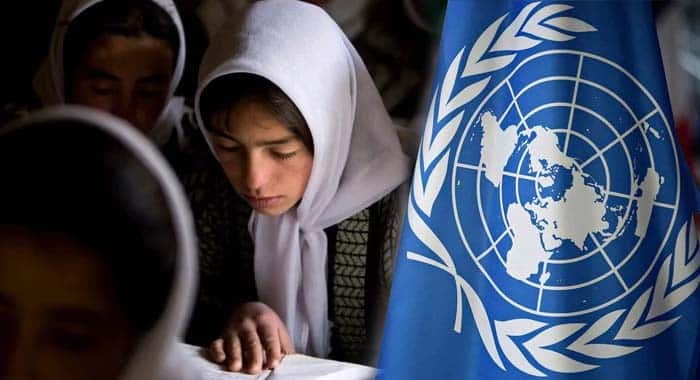On International Literacy Day, the United Nations renewed calls for the Taliban to lift sweeping restrictions on girls’ education, warning that millions of Afghan children remain shut out of classrooms three years after the group’s return to power.
In a post on X, the UN Assistance Mission in Afghanistan (UNAMA) wrote, “Books are not only a source of knowledge, but also a pathway to lasting prosperity,” underscoring Afghanistan’s rich literary heritage and the urgency of restoring equal access to schooling.
The appeal coincides with sobering global statistics. According to UNESCO, an estimated 272 million children and adolescents remain out of school worldwide, while 739 million young people and adults lack basic literacy skills. Despite advances, four in ten children globally still cannot read at a foundational level.
International Literacy Day, observed annually since 1967, aims to highlight education as a cornerstone for building just, peaceful and literate societies. This year’s theme— “Promoting Literacy in a Digital Era”—emphasized the role of technology in broadening learning opportunities for marginalized communities.
In Afghanistan, rights groups say progress has stalled. More than 2.2 million girls are barred from school, and UNESCO warns that without policy change the number could surpass 4 million by 2030. UNICEF estimates roughly 4 million Afghan children overall—boys and girls alike—are out of school, citing shortages of safe buildings, clean water, sanitation and qualified female teachers in addition to the official ban.
Despite repeated diplomatic efforts and condemnation from the international community, the Taliban has not reversed its restrictions, instead insisting that the policy is “temporary” while it revises curricula and develops what it calls “Islamic conditions” for female education. Critics contend that continued exclusion will deepen poverty, gender inequality and long-term instability in Afghanistan.





